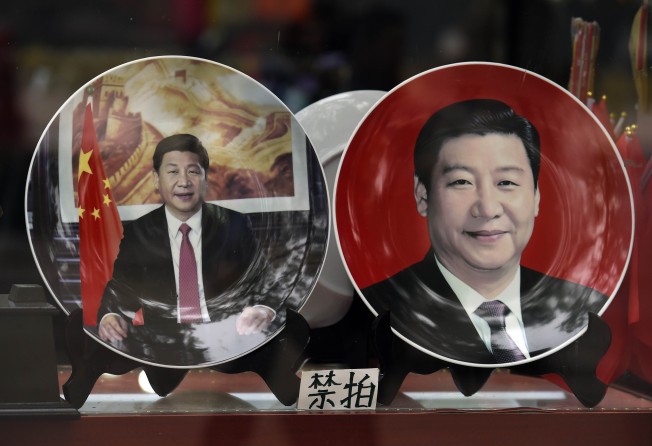Think tanks with Chinese characteristics won't fully succeed in muzzling scholars
Lijia Zhang says Xi Jinping's attempt to rein in public intellectuals can only go so far in the internet age

The vague term "with Chinese characteristics" has been used in the past by the authorities to defend the authoritarian system. At the meeting of the "leading group for overall reform" at the end of last month, President Xi Jinping called for the building of "a new type of think tank with Chinese characteristics".
In this instance, we should perhaps take it to mean "with overt government influence", or adhering to the party line, as Xi stressed at the meeting. But could such a think tank actually function properly and offer independent views, critical thinking or objective evaluation? It would probably end up justifying government policies rather than breaking new ground, for fear of crossing the "red line".
And what about the intellectuals and researchers at think tanks? There has been much debate about the role of public intellectuals even before Xi's remarks. In July, Wang Weiguang , the president of the Chinese Academy of Social Sciences, China's top think tank and research institution, said its members must be "red experts" (experts with the correct ideology) because the institution is not a "loose organisation of a bunch of freelancers who can say whatever they want or write whatever they please".
Wang's remarks led to heated discussion on the internet about whether academy members should be independent thinkers or the party's soldiers. One freelance writer, Shi Pingshan, claimed that what had upset Wang was the word "freedom". "So many conservatives still view it as frightening as 'flood or fierce animal'," Shi wrote.
Renowned scholar Wu Jiaxiang wrote in his Sina blog: "If the Chinese Academy of Social Sciences is not a loose organisation of freelancers, is it a cage for slaves?" Only a few netizens felt academy scholars should serve the government given that they are on its payroll; others pointed out that they are funded by taxpayers. The overall consensus seems to be that the scholars should be allowed to do their job - think independently.
However, several "black sheep" within the organisation have already got into trouble. In 2006, Lu Jianhua , an academy researcher and author of a controversial book Disasters Caused by the Leftists - a scathing examination of the disasters under the Communist Party - was jailed for 20 years for supposedly leaking state secrets. In truth, he was probably punished for his often critical view of the regime.
This May, liberal-minded scholar Xu Youyu was arrested and detained for attending a gathering commemorating June 4.
Back in 1967, Noam Chomsky published his famous essay, "The Responsibility of Intellectuals", in the middle of a national crisis in America after the debacle of the Vietnam war. The essay was very critical of the intellectual culture in the US, especially public policy, which Chomsky believes is subservient to power. He argued that intelligentsia have an obligation to speak truth to power.
For Chinese intellectuals, that's not a luxury they had in 1967, and probably won't have in the near future.
In centuries past, Confucian scholars were frequently torn between their loyalty to the emperor and their duty to point out wrongs. Those who were true to their conscience often faced persecution. Historian Sima Qian was given the choice of suicide or castration. He endured the latter and completed his famed Shiji ( Historical Records).
Intellectuals in contemporary China haven't fared much better, being tightly controlled by the Communist Party from 1949. In 1956, having consolidated power, Mao Zedong launched the Hundred Flowers Movement, inviting intellectuals to speak out. Taken aback by the overwhelming criticism, Mao struck back a year later with an "anti-rightist movement" which sent many who had voiced their honest views to jail or hard labour in the countryside. The Cultural Revolution witnessed more suffering of the intelligentsia.
The reform era has made the cage bigger. In the past two decades, a growing number of intellectuals have ventured to express their views, taking advantage of market-driven media outlets, and more importantly, the internet, which is much harder to police.
Xi's idea about a new type of think tank is seen by some as the regime's latest attempt to rein in public intellectuals who may try to challenge the party's monopoly on truth.
If the authorities could rein in their authoritarian impulse to control everything, they would see that free debate can aid governance, as it would allow scholars to critically assess policies. Otherwise, creativity and pluralism will be stifled just as China needs them in its shift to an innovation-led economy.
There may not be an intellectual spring where "a hundred flowers blossom and a hundred schools of thoughts contend" around the corner. But the era when "10,000 horses were all muted" is gone forever, too.
In this internet age, no government can silence the voice of all intellectuals.
Lijia Zhang is a writer, journalist and social commentator